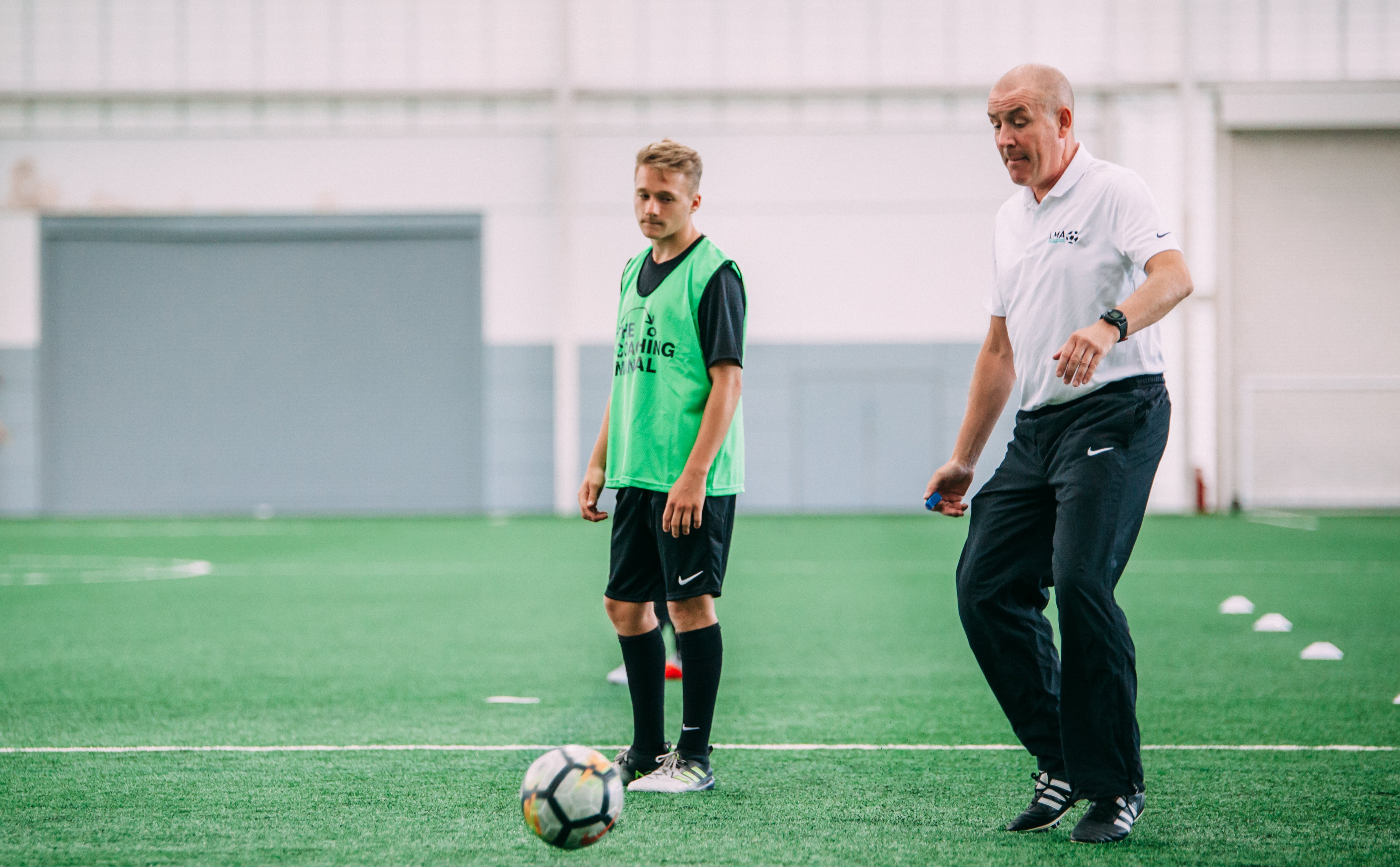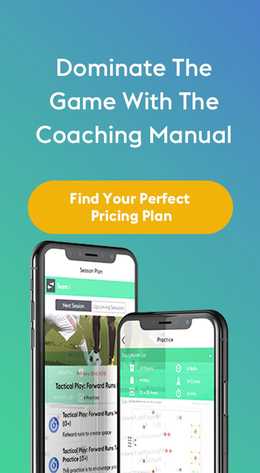Soccer isn't all about winning, particularly at age level. However, this doesn't mean that the beautiful game has nothing more to offer children than the opportunity to have fun and be active.
Youth soccer can deliver a wide range of additional outcomes, from building confidence and self-esteem to developing physical fitness and learning the value of teamwork. But if you're going to achieve any of these goals at your club, you'll need to develop and implement a carefully planned soccer coaching curriculum.
What is the purpose of a curriculum?
In school, the curriculum represents the various lessons and content taught in class as part of a specific course or academic programme.
It's no different in soccer. Your coaching curriculum should detail what you expect your players to learn during a given period - generally a full season.
Developed before the start of a season, the curriculum should be built around clear player development goals. However, it's important to note that the curriculum can be amended as new challenges and goals become apparent.
While they may share a purpose, no two curriculums will look the same. Each should be developed based upon the requirements of the specific club, academy or soccer programme, taking into account factors such as:
- Player age range
- Size of player pool
- Ability level of players
- Experience and knowledge of coaching staff
- Type of facilities available
- Frequency and length of training sessions
Ultimately, you should be aiming to give your players a well-rounded education that prepares them for the new step in their soccer career, whether that be progressing to a new age level or advancing to a high school or college team.
What are you aiming to achieve?
To develop a soccer coaching curriculum, you first need a clear concept of the objectives you're aiming to deliver.
To give a simple example, if you want your players to be skilled in an attractive possession-based game, your curriculum will inevitably focus heavily on keeping the ball. In younger age groups, this might translate to running simple 3 v 3 matches; while older players will develop the skills to play through the thirds, with Rondo drills teaching them to maintain positions and control of the ball.
Aligning your curriculum with your club's vision and philosophy
As you may already have noticed, there is a clear connection between the coaching curriculum and the club's wider sporting philosophy.
Just as it's important to ensure that your coaches are teaching the right playing philosophy, you'll need to align your soccer curriculum with the overarching vision for how you want the game to be played.
To expand the above example, a Director of Coaching who believes in a possession-based game plan probably wouldn't want to implement a training curriculum with heavy emphasis on rapidly transitioning from defence to attack. However, they might want to incorporate defensive drills based on a high press, with the goal of winning the ball back as quickly as possible to give their teams the best chance of dominating possession.
Example: The NSCAA Player Development Curriculum
The National Soccer Coaches Association of America (NSCAA) has detailed the aims of its own player development curriculum. While this won't necessarily apply directly to your club or academy, it provides a useful example of how these aims could look.
Objectives
- Provide attainment standards for measuring coach and player performance
- Reflect coaching best practice
- Promote intellectual, social, personal and physical development
- Establish high expectations for all constituents
- Identify outcomes relating to skills, knowledge and other performance criteria
- Reflect the NSCAA's vision and mission
- Provide equal opportunity for all players to learn and achieve
How should the curriculum be structured?
Just as the content of one curriculum will inevitably differ from that of another, there's no such thing as a "perfect" structure for your season-long coaching plan. A curriculum that works for FC Barcelona's youth development programme is unlikely to yield the same success at a much smaller club, with more limited resources, less experienced coaches, and less naturally gifted players.
That being said, there are some common structural elements that should underpin your soccer coaching curriculum:
Content
In the context of a soccer curriculum, "content" refers to the type of training session held on any given day. You should define the purpose of each session - is it intended to improve tactical awareness? Fundamental skills? Physical and mental development?
Methodology
This section defines how the overarching goal of each training session will be achieved, whether through guided drills, training matches, or theory-based learning.
Supporting knowledge
Beyond the primary goal of the session, what supplementary benefits will it offer to players? For instance, a guided coaching session with regular individual feedback may have the additional benefit of instilling discipline, whereas a self-regulated session with little coaching involvement may help to build confidence and self-esteem.
Learning environment
Literally, where will the session take place? Theoretical training might occur in a classroom around a tactics board; practical sessions on the training field; and fitness sessions in the gym. At different times of year, you may also wish to move sessions indoors to avoid adverse weather.
How The Coaching Manual can help
Developing a curriculum spanning several months of training sessions, with clear progression from one week to the next, is challenging and time consuming. But with The Coaching Manual, this key task can be performed in a matter of minutes rather than days.
Using our unique automated Season Planning tool, you simply need to provide us with a few basic details about your soccer programme, such as the age group of your players and the days of the week on which you train. We take that information and transform it into a bespoke, season-long coaching curriculum, made up of content from our database of hundreds of drills and sessions.
Once we've built your Season Plan, the entire schedule can be accessed via an interactive calendar, allowing you to view the sessions and drills assigned to any given day.



